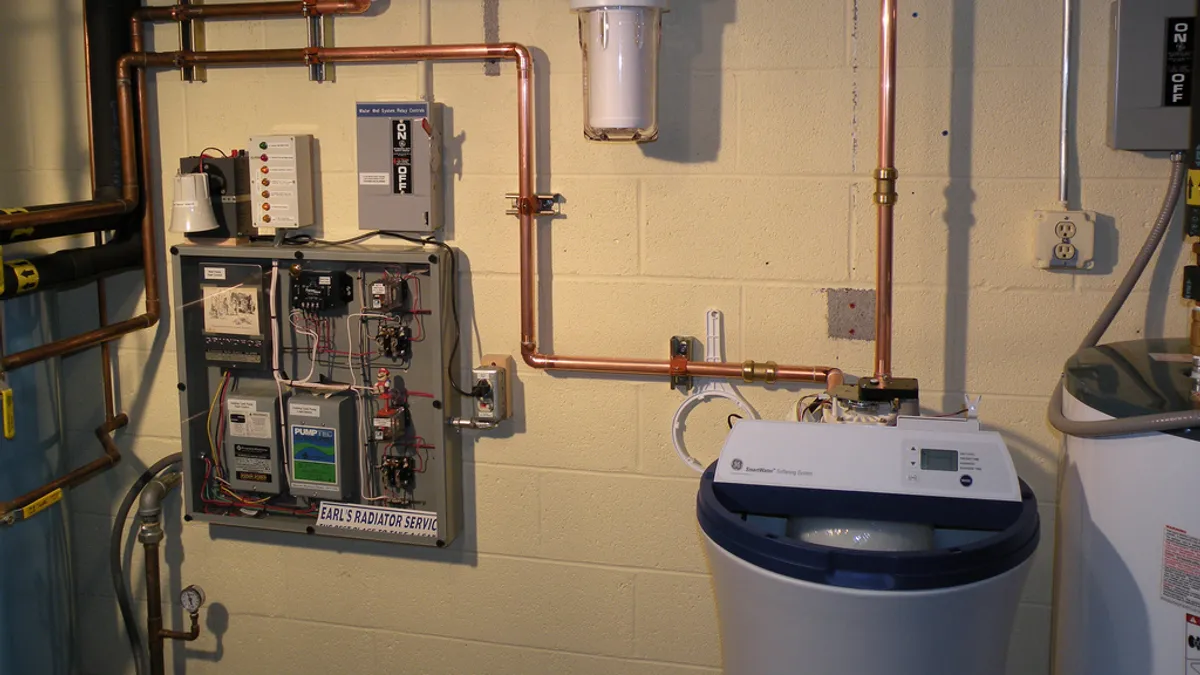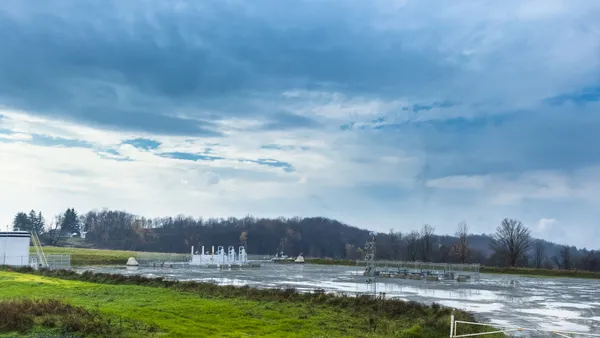Dive Brief:
- The U.S. Department of Energy last week issued a notice of proposed interpretive rulemaking that efficiency advocates say will freeze standards for residential furnaces and commercial water heaters that use natural gas or propane.
- The change would be made in response to a request from the gas industry, to alter how the agency interprets the definition of "performance characteristics" to require separate standards for condensing and non-condensing products.
- Furnace standards have not been significantly updated in more than 25 years, and more efficient requirements could save consumers $24 billion by 2050, according to the Natural Resources Defense Council. Under DOE's proposal, the group said those savings are "all but guaranteed to be lost."
Dive Insight:
Like many of DOE's proposals to slow the advance of energy efficiency, advocates say the devil is in the details.
"While this gets wonky pretty quickly, the issue boils down to the use of condensing or non-condensing technology," Lauren Urbanek, senior energy policy advocate at the Natural Resources Defense Council, wrote in a blog post last week.
A petition from the gas industry was published in the Federal Register on Nov. 1, 2018, requesting that DOE consider changes to how it interprets the definition of "performance characteristics" as it relates to gas furnaces and commercial water heaters. At issue is the different equipment required by condensing heaters, which the industry says requires they be put in a separate product class.
In March 1 comments, several gas industry groups jointly argued that standards achievable only through the use of condensing technology would "eliminate product features including compatibility" with conventional venting systems.
DOE "cannot lawfully adopt standards that would effectively eliminate gas products that are compatible with the conventional atmospheric venting systems built into many of the existing buildings in which gas products are installed," the group maintained.
The group includes the American Public Gas Association, American Gas Association, National Propane Gas Association and the Natural Gas Supply Association.
DOE in its proposed rulemaking said it agreed with the gas industry, noting that it is "very concerned about ensuring energy affordability."
"Although energy efficiency improvements may pay for themselves over time, there is a significant increase in first-cost associated with furnaces and water heaters using condensing technology," the agency said.
NRDC and other efficiency advocates say they disagree with the gas groups' idea of a "performance characteristic" and warn of the change's potential impact
"This petition, if implemented, would have an extremely detrimental impact on the potential for natural gas savings from future appliance standards" NRDC said in its filed comments. "As such, it would drastically limit the potential for financial savings for consumers and businesses who use natural gas equipment."
The Trump administration has been working to slow or roll-back energy efficiency standards across a number of products and industries, including appliances and light bulbs.
DOE has also proposed process rule changes that advocates say introduce an "arbitrary" requirement of energy savings that new or updated standards must meet. And the U.S. Environmental Protection Agency has moved to rescind California's authority to set its own emission standards for automobiles, including its electric vehicle mandate.
Comments on DOE's proposed rulemaking on "Energy Conservation Standards for Residential Furnaces and Commercial Water Heaters" will be due 60 days after it is published in the Federal Register.














